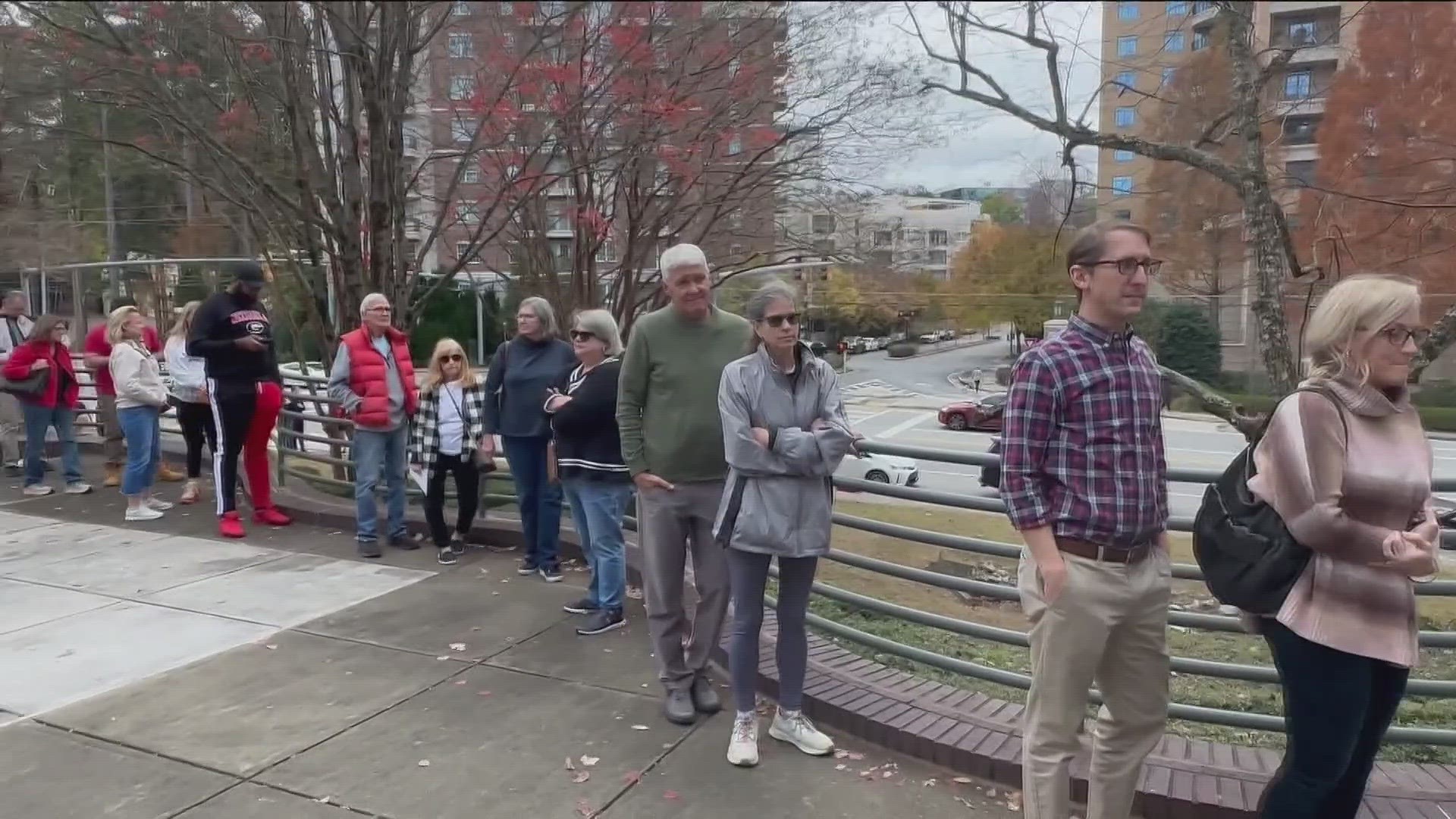ATLANTA — In a ruling Friday, a federal judge partially struck down a ban in Georgia on giving people food and water in voting lines.
The ruling by Judge J.P. Boulee in Atlanta federal court upholds a 150-foot zone outside polling places where food and water or other drinks cannot be given out.
But Georgia's 2021 voting law also established a 25-foot zone around anyone in a voting line where food and water could also not be given out - basically turning a voting line, however far it might extend from the actual polling place, into a "no-go" zone. The struck down that part of the law, classifying "line relief activities" in the zone as First Amendment protected "expressive conduct."
The 2021 law - S.B. 202, passed by Georgia's Republican-controlled legislature in the aftermath of the outcry about former President Trump's loss in the 2020 election in Georgia - had created a misdemeanor penalty that carried with it up to a year in jail for giving out food and drink in the restricted zones.
A second, more narrow ruling Friday by Judge Boulee also struck down a provision of S.B. 202 concerning absentee ballot envelopes. The ruling will prevent the state "from rejecting absentee ballots based on any error or omission relating to the Birthdate Requirement" on absentee ballot return envelopes.
The ban was just one piece of a 98-page bill containing dozens of changes to Georgia voting laws, but one that was seized on by critics as especially punitive. After the law's passage, groups sued Georgia arguing that the practice, known as "line relief" or "line warming," was protected speech encouraging people to vote.
The food and water ban survived an initial challenge in 2022 and was in effect in last year's elections. A renewed motion against it - and much of the rest of S.B. 202 - was filed in May this year.
Other provisions that have been challenged in court include those that restricted drop boxes and shortened the absentee voting period.
Secretary of State Brad Raffensperger said in a statement that he approves of the court's decision to "uphold key portions of Georgia's Election Integrity Act."
“Georgia continues to have one of the most secure and accessible voting systems in the country for all voters, including voters with disabilities,” said Raffensperger.
He called the rules that the court voted on "common sense" in his Friday statement.
The Georgia Secretary of State continued to speak about the law banning food, drink or gifts should have "limited effect" to the Peach State because "a line to vote should not be that long."
Raffensperger provided data that showed that in the 2022 election and the runoff average wait times were anywhere between a minute to 2 minutes long.
“Due to the good work that both the state and county election officials have done to ensure short lines for voters, this decision should have limited effect,” said Secretary of State Brad Raffensperger.” I am grateful that the ban on giving things of value to voters remains in place within 150 feet of the polling place. All voters should have the right to cast their vote in peace without being subject to potentially unwanted solicitations."

